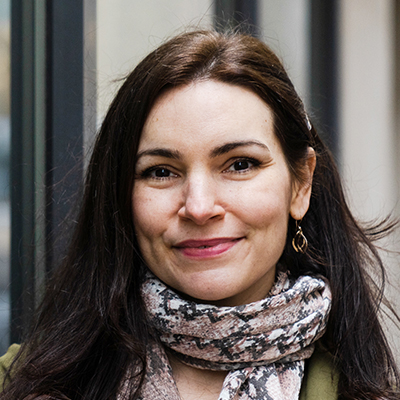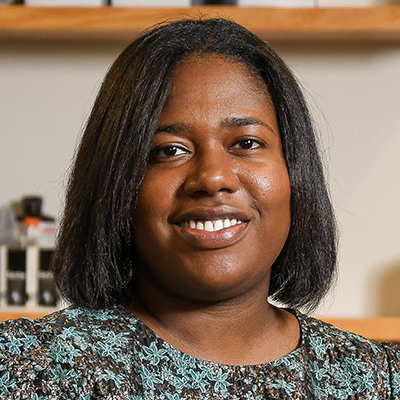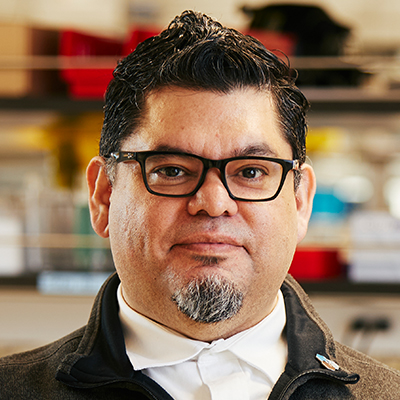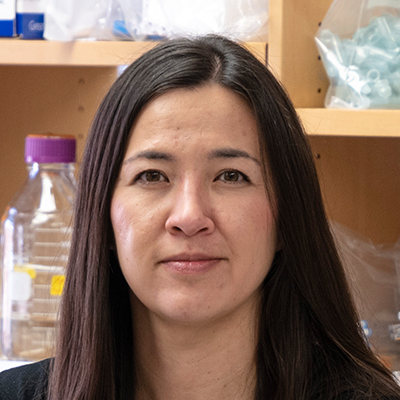HHMI recognizes early-career scholars
The Howard Hughes Medical Institute has named the inaugural class of Freeman Hrabowski Scholars. These 31 exceptional early-career faculty have potential to become leaders in their research fields and to create diverse and inclusive lab environments in which everyone can thrive. Four American Society for Biochemistry and Molecular Biology members were recognized: Josefina del Mármol, Elizabeth Johnson, Juan Mendoza and Judith Simcox.

del Mármol is an assistant professor of biological chemistry and molecular pharmacology at Harvard Medical School. The del Mármol lab uses structural biology, electrophysiology and neurogenetics to understand how olfactory receptors translate the chemical complexity of the environment into interpretable neuronal signals that enable robust odor-driven behavior. She received a National Institutes of Health MOSAIC K99/R00 Pathway to Independence award, the Polak Young Investigator Award by the Association for Chemoreception Sciences and the Blavatnik Regional Award in Life Sciences. She was recently named a Pew Biomedical Scholar.

Johnson is an assistant professor of molecular nutrition at Cornell University. Her lab focuses on how specific nutrients promote the development of the infant gut microbiome and impact infant health. Johnson’s work will better inform caregivers about nutritious food for their babies to support lifelong, microbiome-dependent health. In 2022, Johnson was named a Pew Biomedical Scholar, and she was named a NIH National Institute of General Medical Sciences Judith H. Greenberg Early-Career Investigator Lecturer and a CIFAR Azrieli Gobal Scholar in the Humans & Microbiome Program in 2021.

Mendoza is an assistant professor of molecular engineering at the University of Chicago, Pritzker School of Molecular engineering. His lab studies cytokine-related interactions outside and inside of cells and aims to find new ways to improve immunotherapies by using small molecules or engineered proteins. As a postdoctoral scholar, he was awarded an NIH National Cancer Institute Career Development Award and fellowships from the Helen Hay Whitney Foundation and the Damon Runyon Cancer Research Foundation. In 2019, the International Cytokine and Interferon Society gave him the Milstein Young Investigator Award for his contributions to the field. In 2022, he was elected to the ASBMB Nominating Committee.

Simcox is an assistant professor of biochemistry at the University of Wisconsin–Madison. The Simcox lab works to identify novel lipids in the circulation, determine how their production is regulated and discover how these plasma lipids function in metabolic disease. In 2017, she was awarded the American Heart Association Postdoctoral Fellowship for her work on circulating lipids as a fuel source for the heart during cold exposure. More recently, she was named an Emerging Investigator by the University of Illinois Chicago in 2020. The ASBMB recently announced that she will receive the 2024 Walter A. Shaw Young Investigator Award in Lipid Research.
The Freeman Hrabowski scholars will be appointed to a renewable five-year term and will receive up to $8.6 million over 10 years, including full salary, benefits, a research budget and scientific equipment. In addition, they will participate in professional development activities to hone their leadership and mentorship skills.
Enjoy reading ASBMB Today?
Become a member to receive the print edition four times a year and the digital edition monthly.
Learn moreGet the latest from ASBMB Today
Enter your email address, and we’ll send you a weekly email with recent articles, interviews and more.
Latest in People
People highlights or most popular articles

From humble beginnings to unlocking lysosomal secrets
Monther Abu–Remaileh will receive the ASBMB’s 2026 Walter A. Shaw Young Investigator Award in Lipid Research at the ASBMB Annual Meeting, March 7-10 in Washington, D.C.

Chemistry meets biology to thwart parasites
Margaret Phillips will receive the Alice and C. C. Wang Award in Molecular Parasitology at the ASBMB Annual Meeting, March 7-10 in Washington, D.C.

ASBMB announces 2026 JBC/Tabor awardees
The seven awardees are first authors of outstanding papers published in 2025 in the Journal of Biological Chemistry.

Decoding how bacteria flip host’s molecular switches
Kim Orth will receive the Earl and Thressa Stadtman Distinguished Scientists Award at the ASBMB Annual Meeting, March 7–10, just outside of Washington, D.C.

Thiam elected to EMBO
He was recognized during the EMBO Members’ Meeting in Heidelberg, Germany, in October.

The timekeepers of proteostasis
Learn about the cover of the winter 2026 ASBMB Today issue, illustrated by ASBMB member Megan Mitchem.
